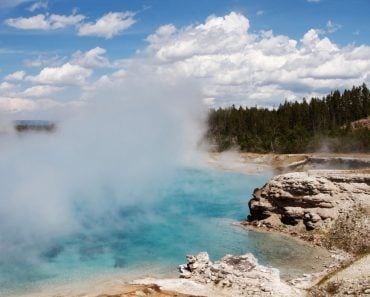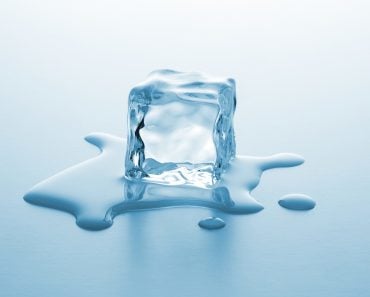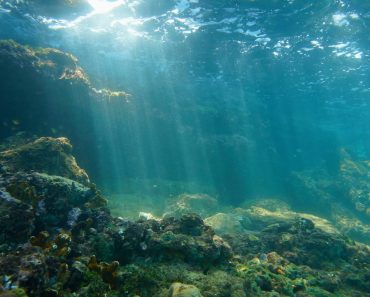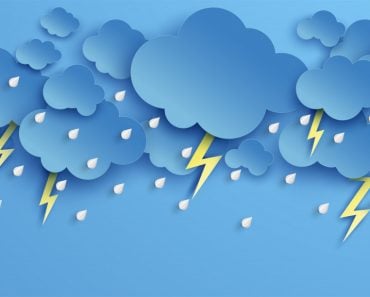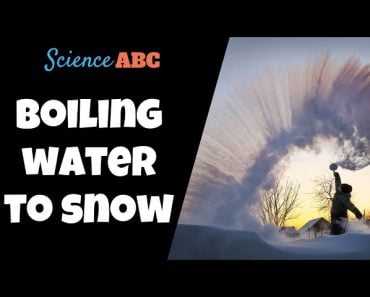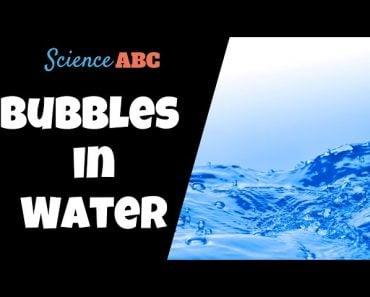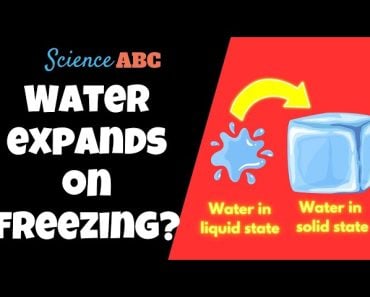Table of Contents (click to expand)
The water actually does evaporate AND seep into the ground. In the former case, the rate is very slow and water gets replenished, while in the latter, the ground beneath becomes saturated after a certain point.
You probably remember something known as ‘evaporation’ from your high school science class. To put it simply, evaporation is the process by which a liquid turns into gas due to a change in its temperature and/or pressure. There are dozens of examples of evaporation in everyday life; wet clothes will dry in the sun, soaked ground dries up after a while, and wet hair loses its moisture in the sunshine in no time.
All of these examples are evidence that water evaporates if kept in the sun for too long, so why doesn’t the water in lakes evaporate?
Recommended Video for you:
Why Don’t Lakes Evaporate?
As mentioned earlier, water evaporates in the presence of heat. Since sun is a natural, the most readily available, and consistent source of heat on the planet, why doesn’t it cause lakes to evaporate, or at least drastically reduce the water levels?
Here’s a simple experiment to explain this phenomenon: fill a glass with water up to the brim and keep it in the Sun. After a few hours, you’ll notice that the level of water has decreased a good deal.
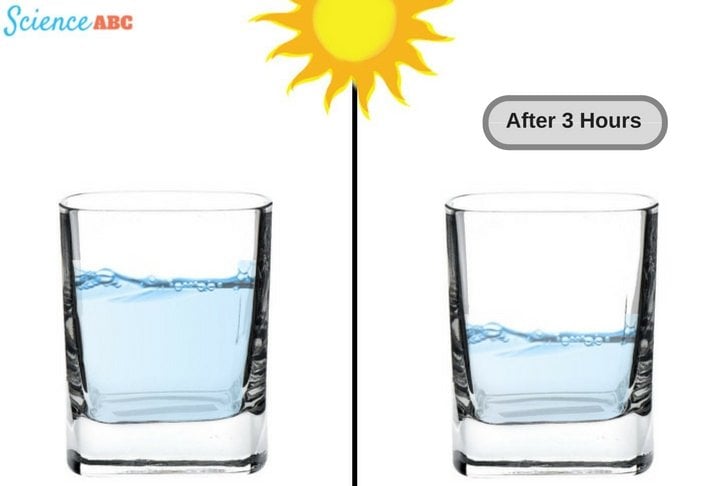
As you might have already guessed, this happens due to the heat of the sun. The same thing happens when it comes to large water bodies, and water does evaporate from them. However, we hardly notice any difference in the water level of lakes.
There are two main reasons for this: first, the amount of water present in lakes and large water bodies is huge (at least compared to what you might have in a beaker/tub). Therefore, the process of evaporation is quite slow, which is why you don’t notice the difference in their water levels.
Having said that, in theory, lakes and ponds should (and do) dry up after a certain period, ranging from a couple weeks to a few months, depending on how large the water body is. Fortunately, that doesn’t happen too often, thanks to the water cycle!
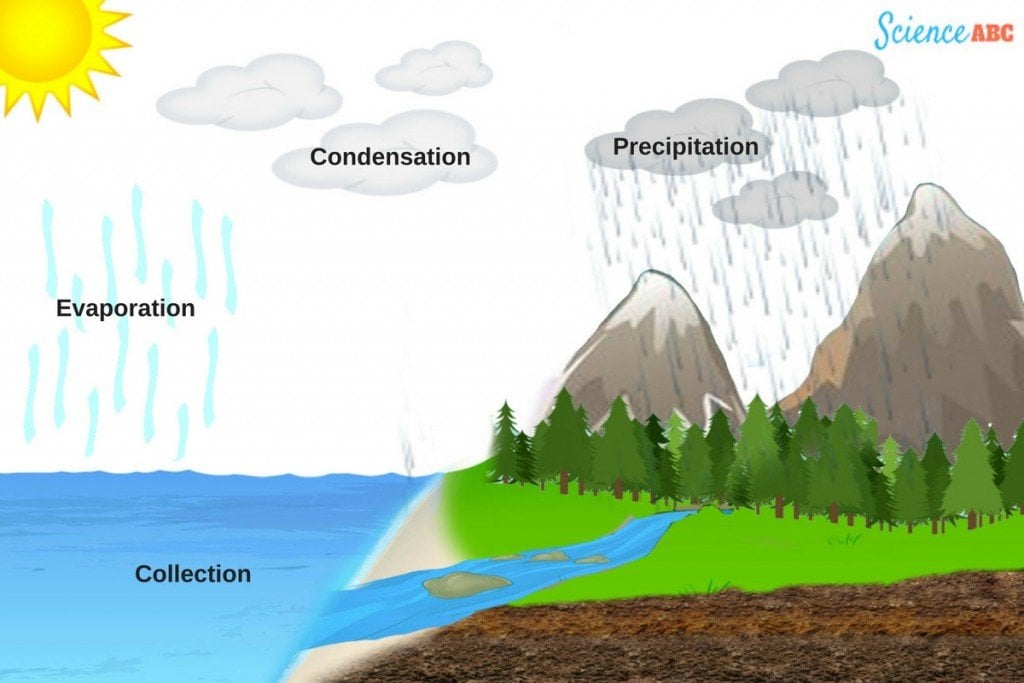
You almost certainly studied the water cycle a number of times in high school. Also referred to as the hydrological cycle, it’s the process through which water first evaporates from lakes, rivers and oceans, rises through the atmosphere and then returns to the surface as precipitation (e.g., rain, snow, hail etc.).
What this means is the water that ponds and lakes lose via evaporation is naturally deposited back in them through rain and other water access points. There are a few methods (recharging through rivers, streams, constructing dams etc.) through which water in lakes can be replenished, which ensures that a lake doesn’t just disappear! Having said that, there are numerous freshwater bodies that do dry up over a period of time if this rate of replenishment is terribly skewed.
Also Read: Are Evaporation And Boiling The Same?
Why Doesn’t The Water Seep Into The Ground?
Now, it’s clear that the water level of a lake cannot drop drastically due to evaporation, but what stops it from seeping into the ground instead? Why doesn’t it just do that?
Well, it does, but there’s a catch…
You see, this seepage depends on the ground on which the lake ‘sits’. If a lake is too deep, then it usually has naturally impenetrable clay or rocks at the bottom, which means that water cannot seep through. Furthermore, soil also has a ‘saturation limit’. We say that something is saturated when it can’t consume/hold any more of a certain thing. For example…

Since there’s a constant supply of water from above, the ground beneath lakes becomes saturated with water to the point where it can’t absorb water anymore. You should note that various types of soils have different ‘filtration rates’. The larger the soil particle, the greater the seepage (like sand). Furthermore, since many natural lakes form in low elevations, they actually receive water input, thanks to underground water, which is another plus.
In a nutshell, water does seep through the ground, but after a certain limit, the ground at the bottom becomes saturated, preventing any more seepage of water. The water just has to sit there, and be slowly evaporated – and then replaced.
All in all, if a water body has enough water and has figured out various ways to get itself refilled regularly, there’s no way it’s going to disappear any time soon!
Also Read: Why Don’t Lakes Have Tides?

